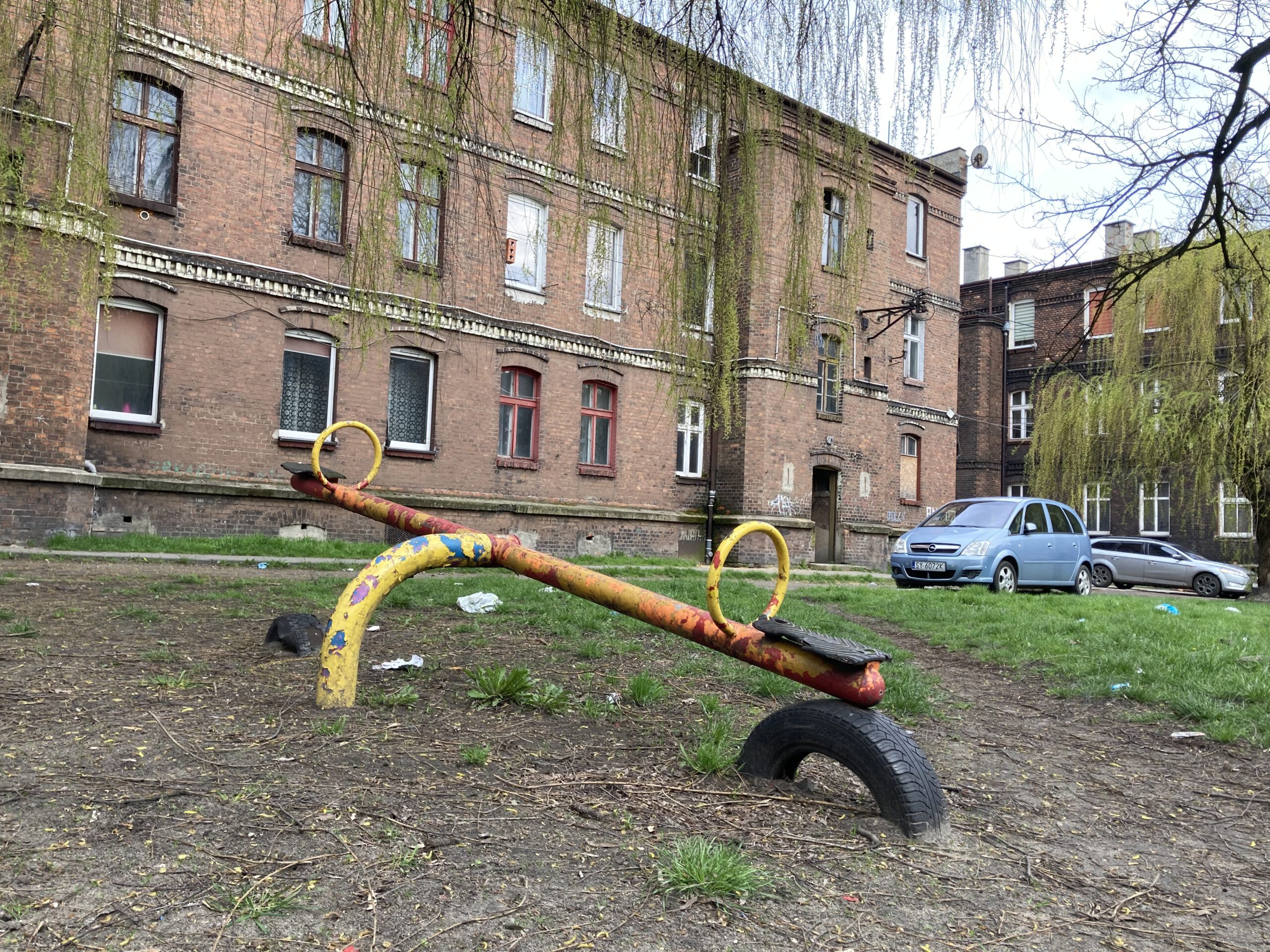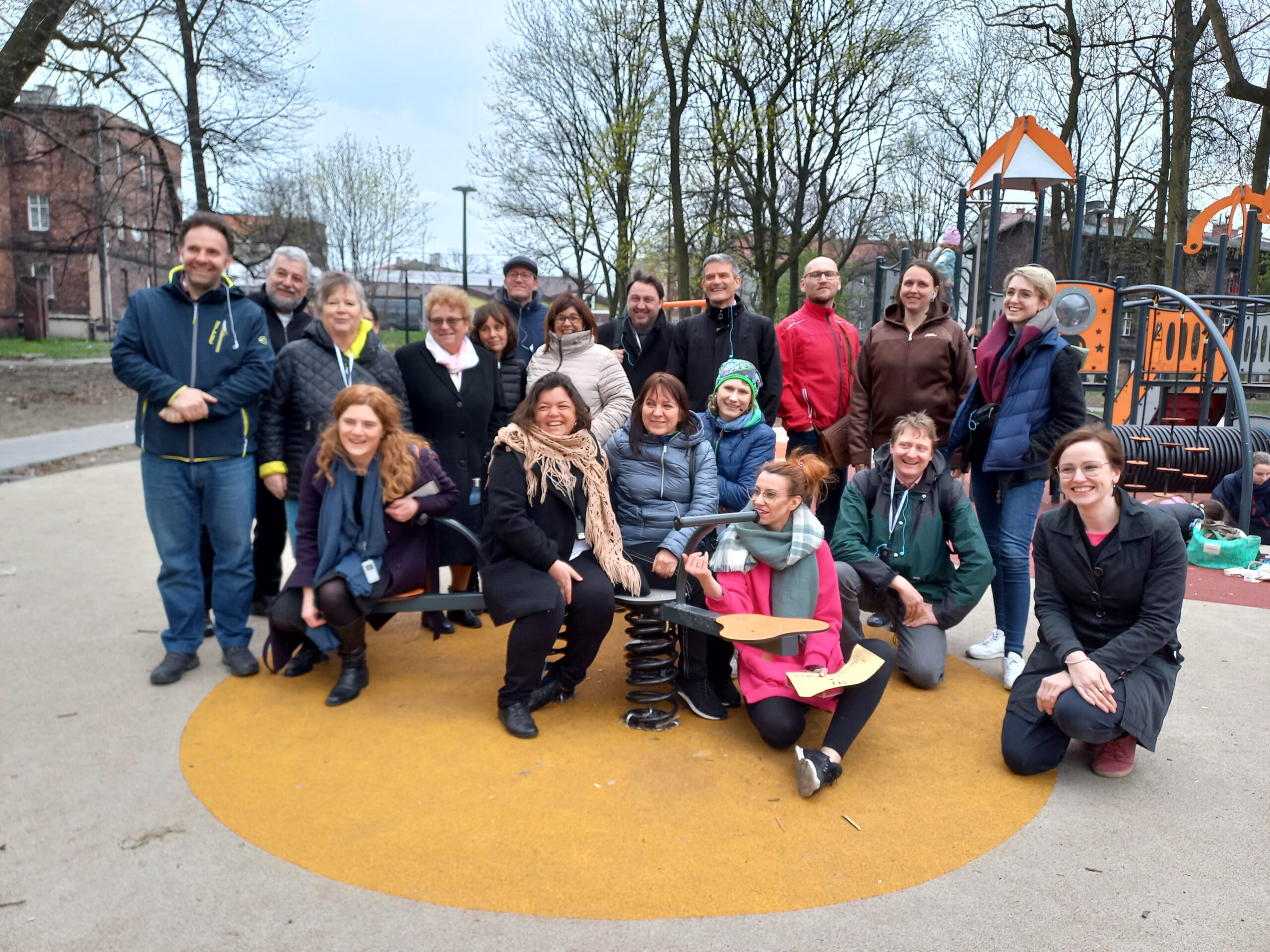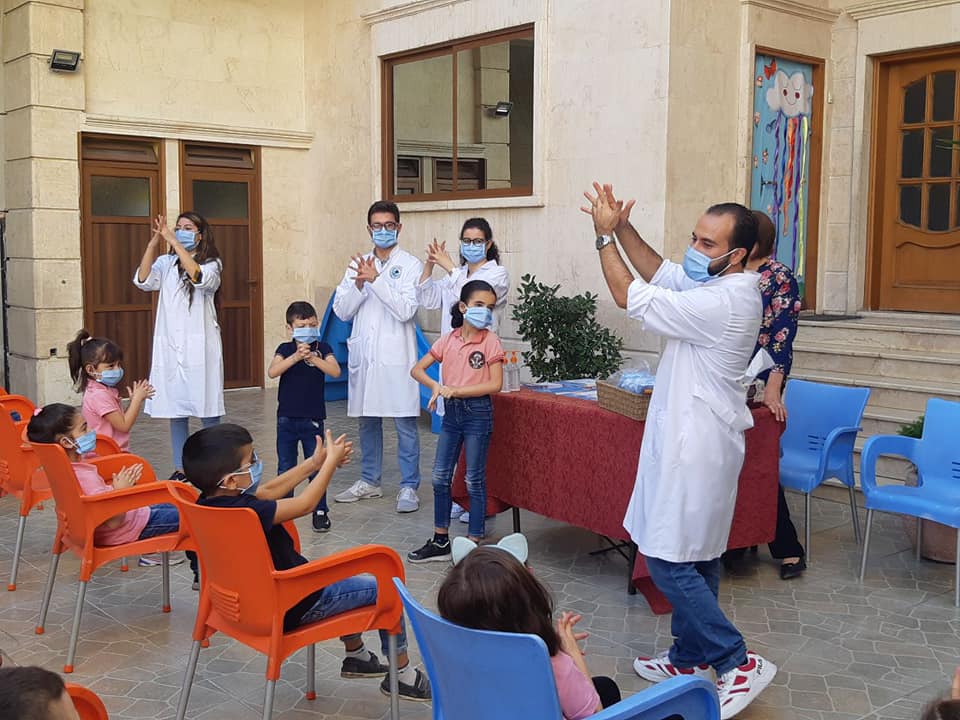Church aid projects
“Euro-orphans”
Numerous children are growing up without parents in eastern (and to some extent also southern) Europe. The international media have dubbed these children “Euro-orphans”. Studies have revealed that more than half of the children in the Republic of Moldova, for example, spend periods of their childhood in the absence of their mother or father. NGOs estimate that somewhere between 500,000 and one million children are affected by this plight in member states of the EU such as Romania, Bulgaria and Poland. Caritas talks of up to nine million “Euro-orphans” in Ukraine.
“Euro-orphans” come to experience parental love as regular transfers into a bank account or packages of brand-name clothes and toys received in the post. But they lack the close company of their parents. Skype images are a poor substitute for kisses and cuddles. It’s no exaggeration to describe this experience as traumatising for these children, as it deprives them of the affection that sets them up for later in life. The risk also exists that being “abandoned” this way makes children susceptible to exploitation (sexual abuse, etc.), insufficient medical care and depression. Their education is also often neglected.
The CPCE’s aid projects
Funding from the Italian cultural tax (“Otto-per-Mille”) awarded to the Protestant Waldensian Church is being channelled into helping the CPCE support representative church projects focusing on “Euro-orphans” in eight European countries. The Gustav Adolf Foundation is co-organising this project work.
Insights into networking between the projects
Two online meetings of project managers in November 2021 and May 2022 revealed a patchwork of approaches to this complex subject. The participants all agreed that the projects need to address not only the children and young people, but their entire family networks. Furthermore, “Euro-orphans” present a challenge not only for the parents’ home countries, or where these children live, but also for the parents’ destination countries. In the latter, efforts need to be made to create humane working and living conditions and to dovetail the provision of aid more closely across borders. The exodus of the parents leaves a hole not only in the children’s lives, but also on the labour market in their home country, the latter being filled by workers from poorer countries, who in turn leave their own families behind. How can this vicious circle be broken?
In the meanwhile the Russian attack on Ukraine changed a lot in Eastern Europe. This time many Ukrainian families were torn apart when the mothers and children left the country. Diaconal projects reacted and included this target group into their work. From 17 to 19 April 2023 a network meeting of project managers took place in Katowice.
How much does it cost to have a better life?
Conference in Katowice about the Euro-orphans phenomenon


„Eurowaisen“
Grundsätzliches
Im Osten Europas (teilweise auch in Südeuropa) wachsen zahlreiche Kinder elternlos auf. Die internationale Presse hat ihnen das Etikett “Euro-Waisen” verpasst. In EU-Mitgliedsstaaten gehen NGOs von 500.000 bis zu einer Million betroffener Kinder aus, die zeitweise ohne Mutter oder Vater aufwachen, etwa in Rumänien, Bulgarien und Polen. In der Ukraine spricht die Caritas von bis zu neun Millionen “Eurowaisen”.
“Eurowaisen” lernen, dass elterliche Liebe in regelmäßigen Abständen auf ein Konto überwiesen oder mit der Post verschickt wird: in Paketen voller Markenkleidung und Spielzeugen. Was ihnen fehlt, ist die Nähe ihrer Eltern. Skype-Bilder sind ein schwacher Ersatz für Umarmungen. Man kann durchaus von Traumatisierungen sprechen, denn es fehlt den Kindern Zuneigung, die prägend ist für das weitere Leben. Es besteht zudem die Gefahr, dass solche „verlassenen“ Kinder ausgenutzt werden (sexueller Missbrauch etc.), dass es ihnen an medizinischer Versorgung fehlt oder sie unter Depressionen leiden. Auch die Begleitung in der Schulzeit fehlt oft.
Hilfsprojekte der GEKE
Aus Mitteln der italienischen Kultursteuer (Otto-per-Mille) der Evangelischen Waldenserkirche unterstützt die GEKE exemplarisch kirchliche Projekte in acht europäischen Ländern, die sich der Thematik „Eurowaisen“ annehmen. Die Projektabwicklung geschieht in Kooperation mit dem Gustav-Adolf-Werk.
Einsichten aus der Vernetzung der Projekte
Zwei Online-Sitzungen der Projektmanager im November 2021 und Mai 2022 haben gezeigt, dass es bei diesem komplexen Thema viele unterschiedliche Ansätze gibt. Dabei ergab sich ein differenzierteres Bild der komplexen Thematik. Es war einhellige Überzeugung, dass die Projekte nicht nur die Kinder und Jugendlichen, sondern die gesamten Familiensysteme in den Blick nehmen müssen. Darüber hinaus stellen „Eurowaisen“ nicht nur eine Herausforderung für die Herkunftsländer der Eltern bzw. Lebensorte der Kinder dar, sondern auch für die Zielländer der Eltern. Hier bedarf es eines Einsatzes für menschenwürdige Arbeits- und Wohnbedingungen und einer stärkeren Vernetzung von Hilfsangeboten über die Grenzen hinweg. Der Wegzug der Eltern hinterlässt nicht nur bei den Kindern eine Lücke, sondern auch auf dem heimischen Arbeitsmarkt. Dadurch kommen aus ärmeren Ländern wiederum Arbeitskräfte, die ihre Familien zurücklassen. Wie kann dieser verhängnisvolle Kreislauf durchbrochen werden?
In der Zwischenzeit hat der russische Angriff auf die Ukraine viel in Osteuropa verändert. Dieses Mal wurden viele ukrainische Familien dadurch auseinandergerissen, dass nun Mütter und Kinder das Land verließen. Diakonische Projekte reagierten und nahmen diese Zielgruppe in ihre Arbeit auf. Vom 17. bis 19. April 2023 fand in Kattowitz ein Netzwerktreffen von Projektleitern statt.
How much does it cost to have a better life?
Konferenz in Kattowice zum Phänomen der Euro-Waisen


Easter Appeal 2020 for Aleppo and Lesbos
In spring 2020, the precarious humanitarian and medical situation of people fleeing from or caught in the crossfire of armed conflict was dramatically exacerbated by the outbreak of coronavirus. This realisation prompted the CPCE to launch its first ever appeal for donations at Easter 2020, consciously focusing on two causes – the people struggling to hold on in the conflict zone of Aleppo and the refugees stranded in dreadfully cramped conditions on Lesbos.
With the assistance of the Swiss Guido Fluri Foundation, the CPCE boosted medical aid to the Greek island of Lesbos, supplying Vostanio hospital in Mytilini with medical equipment such as sterilisation boxes, a respirator for infants, other ventilators, two defibrillators, corona tests and protective gear. We are pleased that donations ensured sufficient tests could be performed to quickly identify the few corona infections during the “first wave” of the virus on Lesbos and treat them in isolation. As the medical aid helped refugees and the local population on Lesbos, it was also able to continue even after most aid organisations were forced to pull out after the fire at the refugee camp in Moria.
The CPCE supported Bethel Polyclinic in Aleppo, run by the Union of the Armenian Evangelical Churches in Syria, via the Gustav Adolf Foundation (GAW). Funds were used, for example, to buy protective equipment, cleaning and hygienic products, medication and food for people isolated in their homes. Since the conflict in Syria prevents almost all cross-border travel, effectively cutting it off from the rest of the world’s population, it wasn’t as severely hit by the pandemic at the outset. However, the cost of many medicines and food increased by more than 200 per cent.
The CPCE’s Easter Appeal raised EUR 103,812.17 in total, of which EUR 61,256.08 was used to supply aid on Lesbos and EUR 42,556.09 helped the people in Aleppo.
Donations came in from more than ten countries, with the majority stemming from funds of the French organisation “Fondation du Protestantisme”.
The General Secretary of the CPCE, Mario Fischer, was delighted by the result: “It is highly encouraging for our church communion to witness how many small churches and individuals contributed to the Easter Appeal. I thank everyone for their donations, which enabled a great deal to be achieved on the ground. Church communion manifests itself joint action.”
Osterkollekte 2020 für Aleppo und Lesbos
Im Frühjahr 2020 spitzte sich die prekäre humanitäre und medizinische Lage von Menschen, die auf der Flucht oder mit kriegerischen Auseinandersetzungen konfrontiert sind, durch den drohenden Ausbruch des Corona-Virus dramatisch zu. Deshalb hat die GEKE zu Ostern 2020 erstmals einen Spendenaufruf gestartet. Bewusst hat die GEKE in diesem Aufruf zwei Projekte verbunden: Zum einen für Menschen, die in Aleppo im Kriegsgebiet ausharren, zum anderen für Migrantinnen und Migranten und Menschen auf der Flucht, die auf der Insel Lesbos auf engstem Raum festsitzen.
Mit Hilfe der schweizerischen Guido-Fluri-Stiftung hat die GEKE die medizinische Versorgung auf der griechischen Insel Lesbos unterstützt. Für das Vostanio-Spital in Mytilini konnte so medizinisches Material, wie Sterilisationsboxen, ein Baby-Respirator, weitere Beatmungsgeräte, zwei Defibrillatoren, Corona-Tests und Schutzmaterial gekauft werden. Wir freuen uns, dass dank der Spenden ausreichend getestet werden konnte und in der sogenannten ersten Welle die wenigen Corona-Infektionen auf Lesbos schnell entdeckt und isoliert behandelt werden konnten. Die medizinische Hilfe kam sowohl den Menschen auf der Flucht wie auch einheimischen Bevölkerung auf Lesbos zu Gute und wurde daher auch fortgeführt, als nach dem Brand im Flüchtlingslager Moria den meisten Hilfsorganisationen die Arbeit untersagt wurde.
Über das Gustav-Adolf-Werk (GAW) hat die GEKE die von der Union Armenisch-Evangelischer Gemeinden in Syrien betriebene Bethel-Poliklinik in Aleppo unterstützt. Das Geld wurde unter anderem zum Ankauf von Schutzausrüstung, Reinigungs- und Hygieneprodukten, Medikamenten und Lebensmitteln für die Versorgung von Menschen, die zu Hause isoliert waren, verwendet. Da aufgrund der Kriegssituation vor Ort kaum Menschen nach Syrien einreisen, war das Land in der Anfangsphase nicht so stark von der Pandemie betroffen, doch für viele medizinische Produkte und Lebensmittel war ein Preisanstieg von über 200% zu verzeichnen.
Die Osterkollekte der GEKE erbrachte insgesamt EUR 103.812,17. Davon wurden EUR 61.256,08 für die Hilfe auf Lesbos verwendet und EUR 42.556,09 für die Hilfe in Aleppo.
Aus mehr als zehn Ländern gingen die Spenden ein, wobei ein Großteil davon aus Mitteln der französischen „Fondation du Protestantisme“ stammt.
GEKE-Generalsekretär Mario Fischer brachte seine Freude über das Ergebnis zum Ausdruck: „Es ist für unsere Kirchengemeinschaft ermutigend, wie viele kleine Kirchen und Privatpersonen sich bei der Osterkollekte beteiligt haben. Ich danke allen für ihre Spende. Damit haben sie vor Ort viel erreichen können. Kirchengemeinschaft zeigt sich in gemeinsamem Handeln.“

